If you have chickens clucking around your backyard in the summer, you must know a thing or two about them.
However, those long winter months are a different story. Some people don’t know what keeping chickens in winter really requires. Here are a few tips on how to care for your chickens when the weather turns.
Keep Your Birds Toasty
Think about yourself in the winter time. You don’t strut around in the cold all day and neither should your chickens. Weatherize your coop before the nights get cold. Then, as soon as the temperature drops to 40-50 degrees Fahrenheit, your birds will be ready.
Winterizing your coop can be done a few different ways. Some are pricier than others.
First, you can insulate the walls either with styrofoam or cardboard to keep the heat in. If your coop has windows or gaps, patch them up with a piece of plywood.
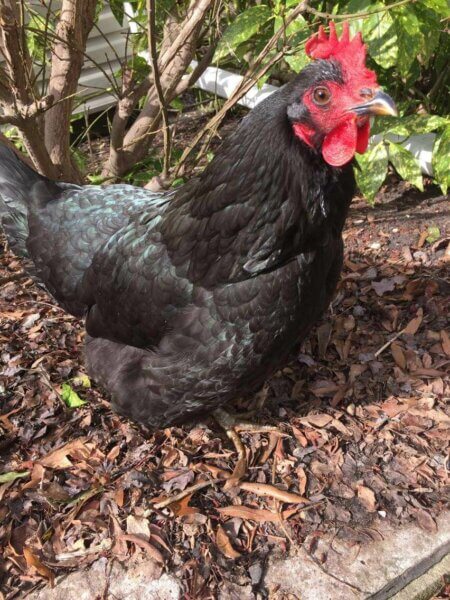
However, be sure to leave some sort of ventilation in your chickens’ coop. Without some airflow, there could be a buildup of ammonia in your coop that can cause discomfort and eventual blindness in your chickens.
A small window covered in chicken wire will provide good airflow, but make sure the wind is not blowing directly where your chickens perch or lay.
In addition, to keeping the wind and dampness out, add some extra bedding to keep things warm. Although, these tips are a good start you might need to do a little more to keep your chickens laying.
Most farmers include a light and a small heater for their chickens during the winter. Be sure to keep these things out of the way. Your chickens should not be able to peck at these or potentially knock them over.
How To Keep The Eggs Coming
Normally, chickens do not produce eggs in the winter because their chicks would not survive the freezing temperatures. It’s perfectly safe for your chickens to lay during the winter as long as they’re well cared for and their environment is right.
If farmers do not take preventative measures, chickens will stop laying eggs completely in the winter months as temperatures drop. Here are a few of the most common ways to address the problem.
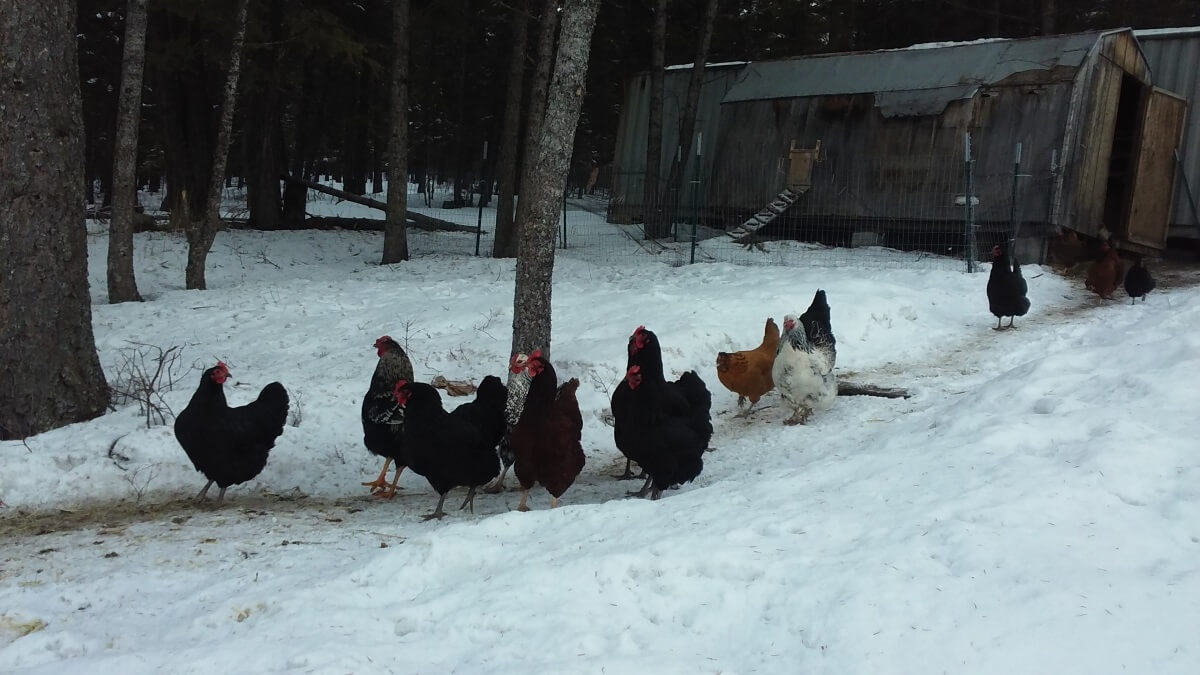
Sunlight is a major factor when it comes to laying eggs. Most chickens need approximately 14 hours of sunlight a day to produce an egg, which isn’t usually a problem in the summer.
Related Post: My Chickens Survived A Montana Winter Because I Broke The Rules
However, the lack of sunlight in the winter tells the birds’ bodies that it is not the time to produce eggs. Buy your chickens a sunlight lamp and put a space heater or heat lamp in their coop, and they should keep laying eggs.
Hungry Chickens Aren’t Happy Chickens
Like most animals, chickens burn more energy and work harder in the winter just trying to keep themselves warm. What most people don’t realize about keeping chickens in winter is that they will require more feed and water to keep up their strength. If they aren’t fed enough during winter, your chickens might stop laying. They’ll use what calories they have to stay warm and alive.
Make sure that your chickens have enough feed and water available during these cold months. This will add strength to your chickens so they can hopefully get back to laying eggs. To produce eggs chickens need protein. While they’re laying, make sure you provide them with feed that has lots of that nutrient.
In addition, toss out some cracked corn in the afternoon. Chickens’ digestive systems need to work a little harder during winter. Giving them grains late in the day will keep them warm into the night.
Let Them Rest
We want our chickens to lay eggs all year long, but the winter is an important time for our chickens to rest. Producing eggs all through the summer puts a large amount of stress on a chicken, which is why they only lay for so many years.
Don’t be frustrated if you do everything you’re supposed to but your chickens still slow down or stop laying eggs in the winter. Just be patient: they will start laying again if they’re fairly young.
When your chickens take a break from laying, try to give them a feed with more carbohydrates as they rest and restore themselves.
Protect Your Birds From Predators and Illness
During the cold winter months some animals become desperate for food. Some predators, like coyotes or foxes, can become more brazen. That’s a serious risk to your chickens: they’re easy targets for hungry predators.
Some farmers allow their chickens to roam the yard or field during the day and lock them in their coop at night. This practice is common in the summertime, but not so safe in the winter.
Predators that are desperate for food are more likely to attack during the day, so keep your chickens in a running area for safety. When you’re keeping chickens in winter, you should keep your birds fenced in an area that is large enough for the birds to exercise.
Fencing your birds in will allow your chickens to safely take advantage of warmer days to roam around.
Illnesses are also more likely to strike chickens in winter. Make sure to keep your coop dry and mold-free. Mold can give chickens respiratory problems. Also, give your chickens water in the morning and afternoon, when the sun is up. Water that freezes is useless, and can leave your birds dehydrated.
Keeping chickens in winter can be a challenge. If you follow these steps, you’ll have happy, healthy chickens when the snow melts.














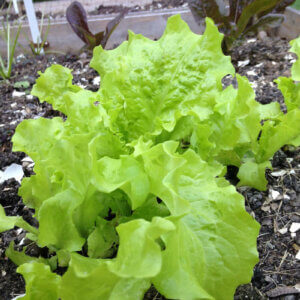




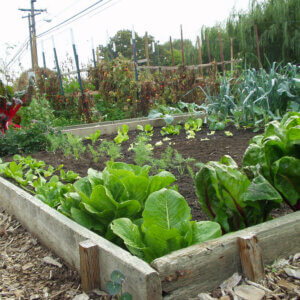



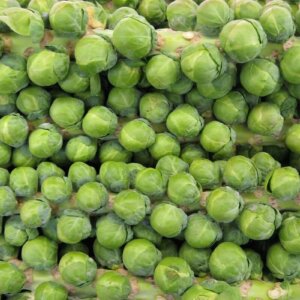




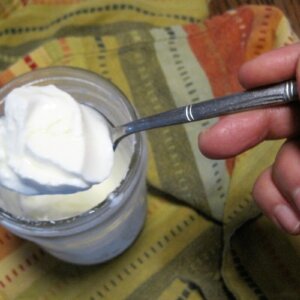





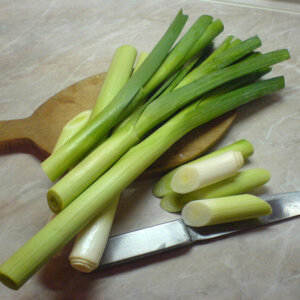

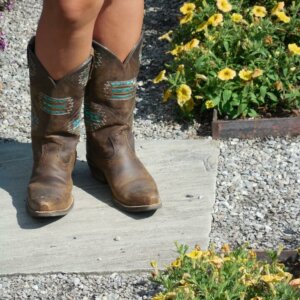





Thank you so much for these great tips! Hopefully our hen keeps on keepin’ on! Any ideas on keeping their water from freezing?
We personally heat up water for tea/coffee in the morning, and then go pour the remainder over the water tin to melt off the ice.
There are people who will install an electric heater pad underneath but the hens could peck at the live electric cord which wouldn’t be good.